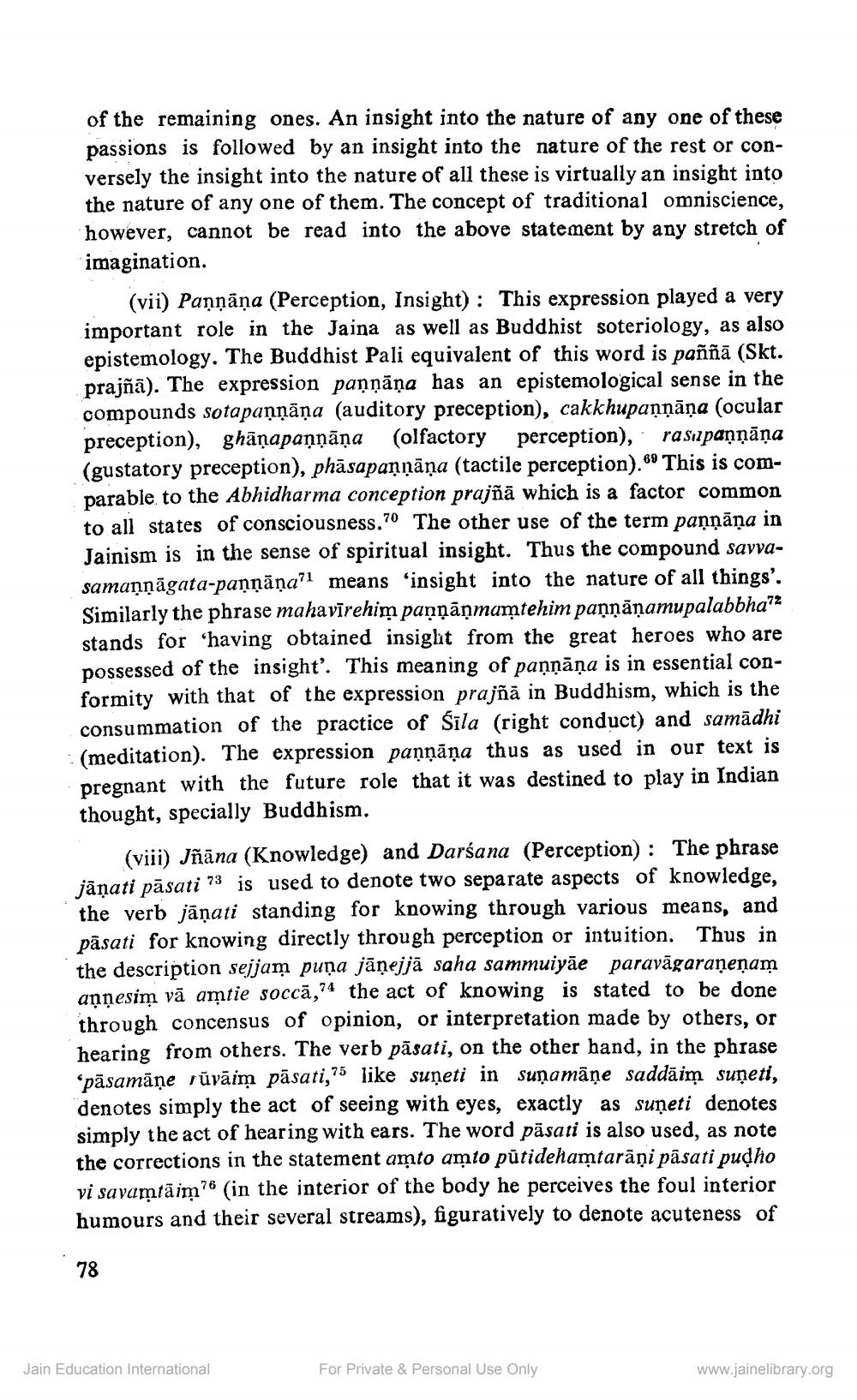________________
of the remaining ones. An insight into the nature of any one of these passions is followed by an insight into the nature of the rest or conversely the insight into the nature of all these is virtually an insight into the nature of any one of them. The concept of traditional omniscience, however, cannot be read into the above statement by any stretch of imagination.
(vii) Panṇāņa (Perception, Insight): This expression played a very important role in the Jaina as well as Buddhist soteriology, as also epistemology. The Buddhist Pali equivalent of this word is paññā (Skt. prajñā). The expression panṇāņa has an epistemological sense in the compounds sotapaṇṇāņa (auditory preception), cakkhupaṇṇāņa (ocular preception), ghāṇapanṇāṇa (olfactory perception), rasupanṇāṇa (gustatory preception), phasapanṇāņa (tactile perception). This is comparable to the Abhidharma conception prajñā which is a factor common to all states of consciousness.70 The other use of the term paņṇāņa in Jainism is in the sense of spiritual insight. Thus the compound savvasamanṇāgata-panṇāna" means 'insight into the nature of all things'. Similarly the phrase mahavirehim pannāņmamtehim panṇāṇamupalabbha stands for 'having obtained insight from the great heroes who are possessed of the insight'. This meaning of paṇṇāņa is in essential conformity with that of the expression prajñā in Buddhism, which is the consummation of the practice of Sila (right conduct) and samādhi (meditation). The expression pannāņa thus as used in our text is pregnant with the future role that it was destined to play in Indian thought, specially Buddhism.
(viii) Jñāna (Knowledge) and Darśana (Perception): The phrase jāṇati pāsati 73 is used to denote two separate aspects of knowledge, the verb jāṇati standing for knowing through various means, and pasati for knowing directly through perception or intuition. Thus in the description sejjam puna jāņejjā saha sammuiyāe paravāgaraṇeṇam annesim va amtie socca," the act of knowing is stated to be done through concensus of opinion, or interpretation made by others, or hearing from others. The verb päsati, on the other hand, in the phrase 'pāsamāņe rūvāim pāsati,75 like suneti in suņamāņe saddaim suneti, denotes simply the act of seeing with eyes, exactly as suneti denotes simply the act of hearing with ears. The word päsati is also used, as note the corrections in the statement amto amto pūtidehamtarāņi pāsati puḍho vi savamtaim76 (in the interior of the body he perceives the foul interior humours and their several streams), figuratively to denote acuteness of
78
Jain Education International
For Private & Personal Use Only
www.jainelibrary.org




